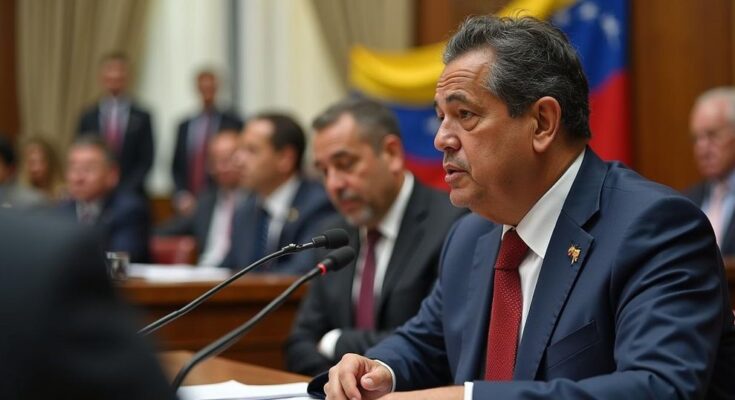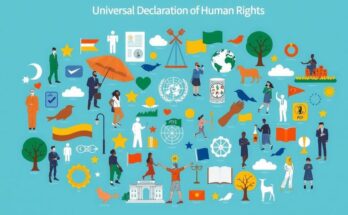Venezuela has dismissed a recent Human Rights resolution as “illegitimate,” accusing the Lima Group and the U.S. of political manipulation, and claiming that the UN has become a tool for coercion rather than a genuine advocate for human rights.
In a fervent declaration, Venezuela’s Foreign Ministry has categorically dismissed a recent Human Rights resolution as “illegitimate.” Labeling the mission as “shameful,” Venezuela asserted it emerged from the political ambitions of the Lima Group, which they described as a “failed criminal group” swayed by the interests of the U.S. government. The communiqué emphasized that this initiative exemplifies the distortions within the United Nations System, alleging it has devolved into an instrument of coercion and blackmail against sovereign nations. Further criticism was directed towards global entities, which Venezuela claimed fall short in addressing grave human rights violations, citing instances of genocide in Palestine and attacks on civilians in Lebanon by Israel. They also referenced support for oppressive governments leveraging the Human Rights Council as a strategic weapon against the Bolivarian Revolution. This charged stance paints a picture of a nation fiercely defending its sovereignty against perceived external meddling and hypocrisy in global human rights discourses.
The backdrop of this exchange is the ongoing tensions surrounding human rights discussions globally, particularly concerning nations like Venezuela that are often criticized for their governance. The Lima Group, comprised of several Latin American countries, was formed in response to the political crisis in Venezuela, aiming to promote democratic solutions. However, Caracas views this group and the associated resolutions as biased and tools of foreign propaganda, particularly by the United States, intervening in what they see as their internal affairs. The discussion extends into broader themes of international law, sovereignty, and the moral imperatives of human rights advocacy, where countries often clash over interpretations and implementations.
In summary, Venezuela’s rejection of the Human Rights resolution highlights the broader contention surrounding international governance and interventionist policies. The country maintains a strong stance against what it perceives as manipulation by external forces, claiming that while they focus on political agendas, real humanitarian crises are overlooked. This conflict underscores the challenges within the United Nations and similar bodies that grapple with the balance between advocacy and sovereignty.
Original Source: www.plenglish.com



